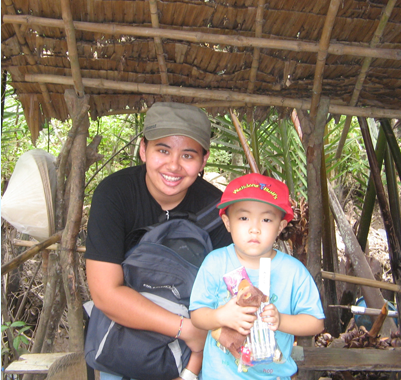Principle 4, often called the Golden Rule of the 11 Principles, functions as the heart of a school’s culture and its character-building efforts. “We are family,” is a refrain heard many times in Schools of Character because they intentionally foster bonds between staff and students, between students, and among all adults (staff, administrators, parents) at school.


Students thrive in schools where they feel connected to their teachers and to one another, both inside and outside the classroom. It is not enough for teachers to say, “We care for our students.” Schools should look for specific evidence that a bond exists, for example:
- Student and parent responses to surveys or focus groups
- Classroom observations
- Voluntary staff attendance at school events
- Teachers making one-on-one connections with their students

Just as teachers can be trained in strategies that promote a caring classroom, practices such as cooperative learning, class meetings, and cross-age groups foster student bonding with one another.



Assessing how students feel about each other, and then using that knowledge to rectify problematic areas are earmarks of a caring school.
A School of Character unites its staff and students in the intentional effort to wipe out bullying and cyberbullying by stressing acceptance and empathy, rallying its students in a vigorous bullying prevention campaign, making clear that peer cruelty in any form will not be tolerated, and training students in what to do if they witness or experience it. Providing parent workshops to recognize the signs of cyberbullying adds another dimension to the efforts.
Happy teachers make happy students so a school should recognize and value its teachers through professional communities and social activities celebrating special occasions. Parents are welcomed at school, and meaningful opportunities to volunteer and work with staff abound.
Lastly, central office administrators in Districts of Character make efforts to know each staff member personally and acknowledge contributions. The superintendent serves as the motivating communicator and liaison to the parents and the larger community.
School Examples
Self-Reflection
Principle 4 is all about relationships. What are you doing to cultivate relationships between all school decision makers?
What opportunities can you provide for all members of the school community to develop empathy and respect for others?
How are you addressing peer mistreatment and bullying? Is it working? If not, what can you do to modify your plan to improve the results?
[wp_quiz id=”4180″]
Research that Supports Principle 4
“Nice people engage in pro-social activities, exhibit basic concerns about fairness and inequality, and refrain from actions that would hurt others. Many of us have recognized the importance of this aspect of moral education, and devoted research and educational efforts at finding ways to optimize students’ school experiences in the form of school climate, developmental approaches to student discipline, scaffolding social problem solving, and more recently, incorporating contemplative practices for mindfulness to foster emotion regulation and interpersonal empathy. (Roeser et al., 2014)”
“There are countless ways for students to practice kindness and increase their empathy capacities. But look for real, meaningful, face-to-face type experiences. Those are the kinds of opportunities our students need to develop caring mindsets and become caring, socially responsible, good people.”
“6 Ways Children Can Spread Kindness in Schools,” by Michele Borba

Authored by Eileen Dachnowicz



